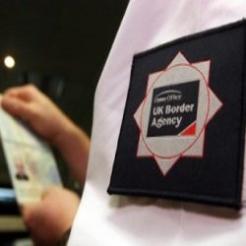The Home Office has issued a Q&A to explain the reduction of funding to voluntary sector agencies that support refugees and asylum-seekers.
Q. Why have these grants to the voluntary sector been reduced so significantly?
A. Given the seriousness of the financial situation, it is not possible for us to make the voluntary sector organisations (funded by UKBA to provide advice & support to asylum seekers and refugees) exempt from the cuts that are facing the UK Border Agency. We also believe it is important to look at how we can refocus the advisory services to ensure they support the Government's wider objectives, especially in the context of a much reduced intake of asylum seekers.
Q. Why is UKBA imposing a significantly greater cut on the voluntary sector partners than it is facing as a result of the Comprehensive Spending Review outcome?
UKBA is not facing uniform cuts and some areas of the business, such as asylum, will be required to bear a greater proportion of cuts.
Q. Are all the voluntary sector advisory grants being cut?
A. No. Not all of the advisory grants are being cut next year. For instance, the grant for the Children's Panel will remain unchanged for 2011/12. The Children's Panel offers support to unaccompanied asylum seeking children through the asylum determination procedure.
Q. What will be the impact of the cuts on the voluntary sector?
A. At the moment, it is not possible to say precisely what the impact will be on the individual voluntary sector organisations affected. We will, however, be working closely with them to discuss how best they can continue to deliver the key services required by the UK Border Agency.
Q. Will the scale of the reductions mean that some of the voluntary sector organisations go to the wall?
A. The reduction in the level of these grants means that the voluntary sector may need to change the way in which it currently delivers its services and it is possible that some consolidation of services may be necessary. We expect that by doing this they will continue to be able to deliver essential services.
Q. How will the cuts affect asylum seekers and refugees?
A. The UK Border Agency will be having further discussions with its voluntary sector partners to ensure that asylum applicants and refugees most in need continue to receive the assistance they need.
Q. How big a saving will you make from these cuts?
A. Precise savings will not be known until the voluntary sector partners have completed their detailed planning for the next financial year.
Q. How does this decision square with the government's Big Society policy?
A. The government is clear that the action it is taking to reduce the deficit could mean a reduction in income for many civil society organisations.
But the sector cannot be immune from reductions in public expenditure because the scale of the challenge to reduce the national deficit is so great.
Q. Have these grant reductions come out of the blue for the voluntary sector?
A. The UK Border Agency has previously been in discussion with the voluntary sector to discuss the options for provision of advice services for asylum seekers and refugees in the context of reduced funding, although at that point we were not able to confirm the amount of grants for the 2011/12 financial year. The numbers have now been confirmed, in writing.
The UK Border Agency will be working closely with these voluntary sector partners to minimise the impact on its service users and ensure that key support services for asylum seekers and refugees continue to be provided during the next financial year. In conjunction with its voluntary sector partners, the UK Border Agency has also been looking at what it can do to ensure that their resources go even further.
Q. How many people use the voluntary sector services?
A. Since the introduction of the grant payments, the voluntary sector advisory services have assisted a large number of asylum applicants and refugees. However, the number of asylum applicants has reduced over recent years. For example in 2002 there were 84,130 applications for asylum (excluding dependants) whilst in 2009 there were 24,485. Following the decrease from the peak in 2002, asylum applications, excluding dependants, have remained at a similar level since 2005 (25,710). Source: Home Office Control of Immigration Statistics 2009.
Q. Where will asylum seekers and refugees go for assistance if they experience problems accessing advice and support from existing voluntary sector providers?
A. Asylum applicants and refugees can contact the UK Border Agency direct for advice if they have difficulty accessing it through the voluntary sector. UKBA asylum case owners deal with every aspect of an asylum application, from beginning to end. Asylum applicants are allocated a case owner within a few days of making their application. The case owner is the single point of contact on the progress of the application. Case owners will also arrange for an asylum applicant's integration into life in the United Kingdom or their return to their country of origin. Asylum applicants should direct any questions about the legal aspects of their claim to their legal representative.
Asylum applicants and refugees can also continue to receive advice and support from other statutory organisations and other and other non-UKBA-funded advice and support groups.
- Read Tania Mason's story about cuts to Refugee Council funding here.









